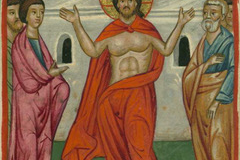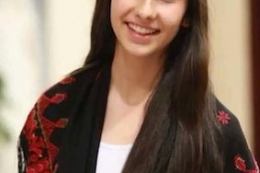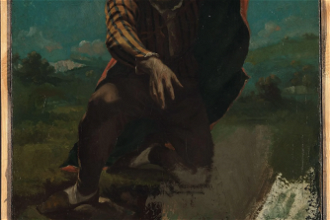Faith and Martyrdom: The Eastern Churches in Twentieth Century Europe
A new book: 'Faith and Martyrdom: The Eastern Churches in Twentieth Century Europe; (Proceedings of the meeting on contemporary Church history, Vatican City, October 22-24, 1998), was launched in the Vatican yesterday.
Among those who spoke during the presentation were Cardinal Ignace Moussa I Daoud, prefect of the Congregation for the Oriental Churches, Andrea Riccardi, founder of the Community of Sant'Egidio, Bishop Pavlo Vasylyk of the eparchy of Kolomyia-Chernivtsi, Ukraine and Mgr Tertulian Ioan Langa of the eparchy of Cluj-Gherla, Romania.
Cardinal Daoud said this book documents "the suppression of various Eastern Catholic Churches: Ukrainian, Romanian, Slovakian and Ruthenian. After being erased from history, these Churches have come back into existence and today strive to never forget the persecution they suffered."
After emphasizing that the publication "gives a voice to those who suffered so much," he said: "Despite this, there is no rancour. Despite difficult relations in the past, in many cases during the 'century of martyrs', Eastern Catholics and people of other confessions learned how to suffer together in prisons, in the 'gulags', in the forced labour camps."
The prefect of the congregation assured everyone that they will continue to collect documentation about the faith experience of Eastern Catholics, "reflecting on the witnesses of the faith of our Churches, which can explain the root of so many prejudices."
Professor Riccardi said that "the martyrdom of Eastern Catholics is connected to their specific situation, that is the fact that they belong to two worlds: the world of Eastern tradition and the world of the Catholic Church.
"Eastern Catholics,"belonged to a group that communist policy did not admit in any part of the Eastern empire (from the former Czechoslovakia to Romania), with rare exceptions, such as in the small and tormented Bulgarian community and in Hungary. These pages illustrate the Soviet design to exterminate Eastern Catholicism."
The founder of the Sant'Egidio Community explained that "the big problem is religious freedom. Depriving Eastern Catholic communities of life means denying religious freedom and freedom of diversity. It was that diversity that the communist regimes could not accept."
Referring to the term "martyr," he affirmed that "this is a word which is abused in our language." In this way, people speak about "suicide martyrdom which is very different from Christian martyrdom." Christian martyrs "do not die in order to kill others but rather give their life to save the life of others, so that they do not have to give up their faith, to support other believers out of love. They are not seeking death, but they do not renounce their faith or human behaviour in order to save their own life. This is the story that is told in these pages."
Mgr Tertulian Ioan Langa, 82, spoke of his 16 years in communist prison camps, describing the "massive and threatening atheistic Soviet presence on the Romanian borders," the "violent and atrocious presence of atheistic communism" and "the brutal and humiliating presence of Soviet troops who had occupied almost a third of the national territory."
He described the the countless times he was interrogated, years of torture, deprivation, humiliation, and unspeakable suffering, the "diabolic rituals" prisoners underwent to make them talk. What became important for him and helped him to survive were his own rituals: praying, composing litanies, remembering and reciting Psalms.
Bishop Pavlo Vasylyk, 77, was imprisoned many times over many decades by Soviet authorities. During his first term in prison from 1947 to 1956, he was ordained a deacon and performed his ministry in prison, saying he only found the strength to do so because "what is impossible for a human person is possible for the Lord. The conditions we lived in the concentration camps were pitiless, worse than the German concentration camps. The Gospel kept us human, kept us Christian."
Shortly after being freed in 1956 he was ordained priest, imprisoned again from 1959 to 1964 and exiled upon his release, forbade to minister in western Ukraine, though he did anyway. Ordained a bishop in 1974, he was constantly threatened by the KGB, but continued his episcopal ministry. On August 4, 1987, the Ukrainian Greek-Catholic Church "announced to the entire world our Church's exit from the catacombs to a full and normal religious life."
Source: VIS
First posted: ROME - 24 March 2004 - 780 words


















